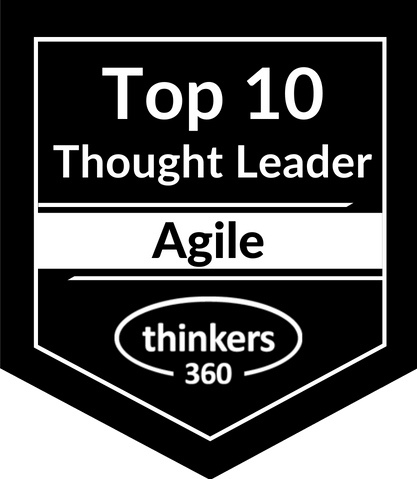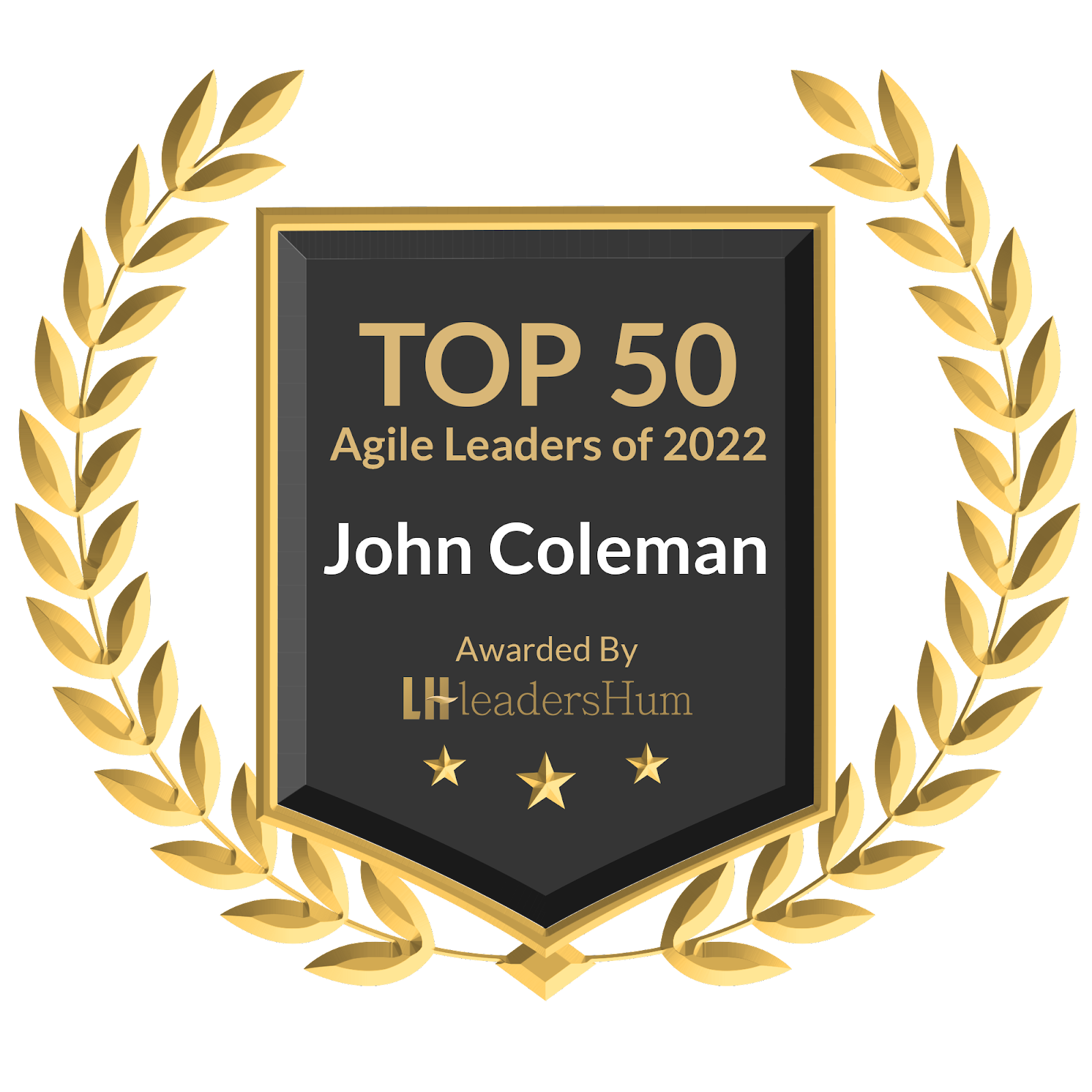Professional Scrum with Kanban
Live Virtual Class, December 4-6, 2024
Class Overview
Apply Kanban Practices and Improve Flow in Professional Scrum
Professional Scrum™ with Kanban (PSK) is an interactive, activity-based training course that teaches experienced Scrum Masters and other Scrum practitioners how to improve their work by applying Kanban practices in the context of Professional Scrum. Through theory, case studies, and hands-on exercises, students will learn how Kanban practices can help Scrum Teams achieve better outcomes by improving workflow. Organizations using DevOps, Continuous Integration, and Continuous Delivery (CI/CD) will find adding flow to their application of Scrum to be a natural complement.
The course also includes a free attempt at the globally recognized Professional Scrum with Kanban(PSK I) certification exam.
Course Overview

There is a myth that teams must choose between Scrum and Kanban. Leveraging Kanban practices can optimize the flow of work in Scrum, and this two-day training course will teach students the benefits of using Scrum and Kanban together.
Students will learn how to optimize their workflow by adding four Kanban practices to Scrum:
- Visualizing the Sprint Backlog workflow on a Kanban board
- Limiting Work in Progress (WIP)
- Actively managing work items in progress
- Continually inspecting and adapting the way the team uses flow optimization
By leveraging these practices, teams improve transparency, collaboration, and self-management, ultimately improving their ability to achieve Sprint Goals sustainably. In addition, this course focuses on helping students track and manage flow metrics to provide more predictable delivery patterns, ultimately helping them overcome common delivery challenges with getting to “Done.” Students will leave with a better understanding of what good Kanban looks like and how to implement it within a Professional Scrum environment.
Scrum.org and our Professional Scrum Trainers have worked with Daniel Vacanti and Yuval Yeret to create this course, leveraging their Kanban expertise and knowledge. In 2007, Daniel helped to develop the Kanban Method for knowledge work, including managing the world’s first project implementation of Kanban. Yuval, the author of "Holy Land Kanban," is a recipient of the Lean Kanban community Brickell Key Award for his work helping establish a strong Kanban community with several enterprise product developments in Israel and worldwide. In addition, all trainers of this class must have real-world experience in both Scrum and Kanban.
Course Learning Objectives
After this course, PSK participants should be able to:
- Understand flow and Kanban practices from the perspective of the Scrum Team
- Explain how Kanban practices can be used to improve flow within a Sprint
- Increase transparency by helping the Scrum Team visualize their Workflow
- Use data to create a Scrum Team’s Service Level Expectation (SLE) for use in improving delivery predictability
- Apply the concept of flow and Kanban practices during Scrum Events
- Assist the team in overcoming common flow challenges by actively managing WIP
Who Should Attend
The Professional Scrum with Kanban course is designed for experienced Scrum Practitioners who understand Professional Scrum and want to learn how to implement Kanban practices with their Scrum Teams. Ideally, attendees have read the Kanban Guide for Scrum Teams and have passed the Scrum Open assessment. The course is particularly beneficial for the following:
- Scrum Masters who want to learn how flow, flow metrics, and other Kanban practices can help them and their Scrum Teams improve how they work in Scrum
- Professional Scrum Practitioners with a desire to improve their current practices and who are interested in learning how Kanban practices can help them and their teams improve
Professional Scrum with Kanban Certification
All participants completing the Professional Scrum with Kanban course will receive a password to attempt the Professional Scrum with Kanban I (PSK I) assessment. PSK class participants who attempt the PSK I assessment within 14 days of receiving their free password and do not score at least 85% will be granted a 2nd attempt at no additional cost.
Why Scrum.org
Scrum.org provides the highest-quality Scrum training, training materials, and certified Professional Scrum Trainers (PSTs) to teach it. Our training materials are created and maintained by Scrum co-creator Ken Schwaber, Scrum.org, and the PST community members who teach the courses, helping to ensure that they are in tune with what’s happening in organizations and always up-to-date with the latest practices.
Professional Scrum Trainers bring their own style and experience to the courses but use the same materials so that students learn from the same content regardless of who teaches the course or where it is taught worldwide. Read more about the differences.
Class Details
Taught By
Language
English
Delivery Method
Date
Class Format
TraditionalPartner
Orderly Disruption LimitedRegistration & Price
After entering the billing address, local sales tax, VAT, or GST will be determined. If you disagree with the currency exchange or tax treatment, please email info@orderlydisruption.com.
Registration for this class has closed
More Information
Profile of the trainer



- Active agility chef, executive agility guide, and product manager
- #2 Agile Thinkers360
- Leadershum Top 50 Agile Leaders 2022
- Flight Levels Coach, ProKanban Professional Kanban Trainer, Scrum.org Professional Scrum Trainer including Nexus, LeSS Friendly Scrum Trainer
- Creator of Kanplexity™ & Xagility™
- Co-author of Kanban Guide
- Host of Xagility™ & Agility Island podcasts
- See linktr.ee/johncolemanxagility for social and podcast links
- See https://linkpop.com/orderlydisruption for John's other classes
- InfoQ article June 2022 - why you might need an island of agility
- InfoQ article August 2022 - talking about sizing & forecasting in Scrum
What John Coleman's Students Say
* When offered in person, this course is generally delivered over two consecutive days. When offered as a Live Virtual Class, the course may be broken up into more, shorter days, sometimes consecutive, sometimes one week apart.
It's not just about Reviews & Ratings
Reviews & ratings are limited by nature. John needs to understand if the learning made a real difference back in the office. So, John likes to check in 12-18 months later. He sees a pattern of improvement and regularly gets pleasant vibes from successful agility inspired by ideas from the training. For example, see this experience report.
John's Scrum+Kanban Nexus+ case studies can be found at https://www.valueglide.com/blog/nexus-nexus-and-scrum.org-certifications.
John is grateful to be part of Marshall Goldsmith's #payitforward campaign and, in so doing, offers free coaching/mentoring/co-training to a selection of potential agility chefs. Marshall Goldsmith taught John in Salt Lake City in February 2018. All of John's workshops #payitforward Marshall Goldsmith content, including Marshall's advice to John himself.
Clients
John's client list (directly or indirectly) includes Japanese Tobacco International, TUI, Lilbit, digital2DNA, Shell, BP, Barclaycard, Vocalink Mastercard, Centrica, the Musgrave Group, RR Donnelley, DELL, Nordic Aviation Services, 84.51, Intralinks, PaySafe, Vodafone, Ericsson, NASA, and Sky.
Free assessment readiness call(s)
Assessment preparation tends not to be covered in the workshop. The workshop focuses on attendees getting ready to apply new skills back at work immediately after the workshop. There is an expectation that attendees will attend some free post-workshop Zoom calls and watch recordings of their own group (or previous groups) doing tough practice tests, sometimes including John Coleman's own practice tests, which address the same learning outcomes, albeit from a different angle. John has an expectation that attendees will attend the calls, as assessment preparation does not scale on a 1:1 basis. Signing up for this workshop is effectively signing up to attend these calls.
Co-trainers
Sometimes, John Coleman will have a trusted co-trainer to give a helping hand, someone who is already qualified or who is building up experience.
Venue
Workshop Environment
Assessment preparation tends not to be covered in the workshop. The workshop focuses on attendees getting ready to apply new skills back at work immediately after the workshop. There is an expectation that attendees will attend some free post-workshop Zoom calls and watch recordings of their own group (or previous groups) doing tough practice tests, sometimes including John Coleman's own practice tests, which address the same learning outcomes, albeit from a different angle. John has an expectation that attendees will attend the calls, as assessment preparation does not scale on a 1:1 basis. Signing up for this workshop is effectively signing up to attend these calls.
Sometimes, John Coleman will have a co-trainer, someone who is already qualified or who is building up experience. Please let John Coleman know in advance if you need him to bring an assistant trainer who speaks your language via john@orderlydisruption.com; economics will hopefully be in our favor to allow that if there is enough demand.
Live Virtual
- Each segment is 60-75 minutes long with 15-30-minute breaks. Attendees have the choice of spreading the workshop over several days if advertised or if other attendees are ok with that —no recording of the workshop to improve openness. The workshop size is limited to 20 attendees.
- Workshop attendees will use Zoom/Teams, Mural, Slack, StoriesOnBoard, Strategyzer, Kanbanize/SwiftKanban, and John's physical flipcharts.
- Learning online is almost as effective as face-to-face. The critical difference is working together online; it takes longer to do things. A "funnel" is added to the Kanban Board for optional best efforts additions to the official curriculum. Most questions will be answered to the satisfaction of the attendees, one way or another.
Rules to follow:
- cameras on
- mics on - let's avoid delayed interventions
- be on time for every segment
- no meetings/phone calls/emails during the active segments
- be self-aware and conscious of the needs of others to have their say
- no hijacking of the agenda; a free coach session is on offer per attendee; use that instead.
A Scrum Reset is often needed in the workshop
If the class attendees demonstrate additional ability, bonus content may be covered. However, the class pace can get set to a slower pace by even one attendee who has not prepared for class, as per pre-class communications. While John Coleman's style is to assume zero knowledge, some attendees may have negative knowledge and preconceived ideas that are incorrect according to Scrum.org.
Negative knowledge creates drag for a training class, hence John Coleman sometimes performs pre-training-screening-calls. While there are no formal prerequisites for Scrum.org classes, the trainer may request in pre-training phone calls that some attendees go to Professional Scrum Foundations/Scrum Master (by any Scrum.org trainer) to ensure a smooth learning experience, even if the booked class ticket needs to be postponed to another date, refunding if necessary less banking fees. Either way at the beginning of each workshop, some kind of Scrum reset takes place to align attendees and reduce the potential for learning drag later.
Payment, fees & cancellation
- Payment in advance is required, with no exceptions. All documentation requirements for invoice payment by the training date must be declared at the outset.
- VAT additional for UK clients only.
- You may cancel up to the specified online ticketing deadline, and if so, depending on the payment engine/approach, the refund could have deductions for bank transfer fees.
- You may postpone your ticket with a minimum of three business days' notice. Otherwise, your lack of attendance at the booked date will be treated as a cancellation with zero refund (due to planning and venue costs for class numbers). Best efforts will be made to fit you into a later workshop.
- Electronic manuals and Scrum.org assessment fees are included. Physical manuals are not provided.
GDPR etc.
Subject to GDPR or other regulations:
- Attendees may be asked to optionally consent to receive communications, e.g., follow-up email newsletters.
- A booking does not guarantee attendance. The trainer may need to contact attendees to assess their readiness for the training class. It is possible the trainer will recommend additional training/reading before you can be accepted into the booked class.
- To get an assessment, the trainer must submit your name and email address to Scrum.org, which may, in turn, send you regular newsletters.
- Attendees will be invited to a Slack channel for the class to enable communications before, during, and after the class.
- Photographs and/or video permission will be requested in class for follow-up marketing purposes.
- Reviews & Testimonials will be requested in class; you can add the same review and star rating to each of VocalReferences, TrustPilot, and Google, to be performed optionally in class. Attendees may also be asked to provide feedback to Scrum.org. For these requests, regardless of the response, additional bonus learning content will be delivered.
- A limited number of free-of-charge post-training Zoom/alternative calls are offered. To book, attendees can arrange to meet me via https://calendly.com/johncolemanagile
- Attendees may be asked to join compatible communities, e.g., the LeSS community.
- See the privacy statement at orderlydisruption.com.

